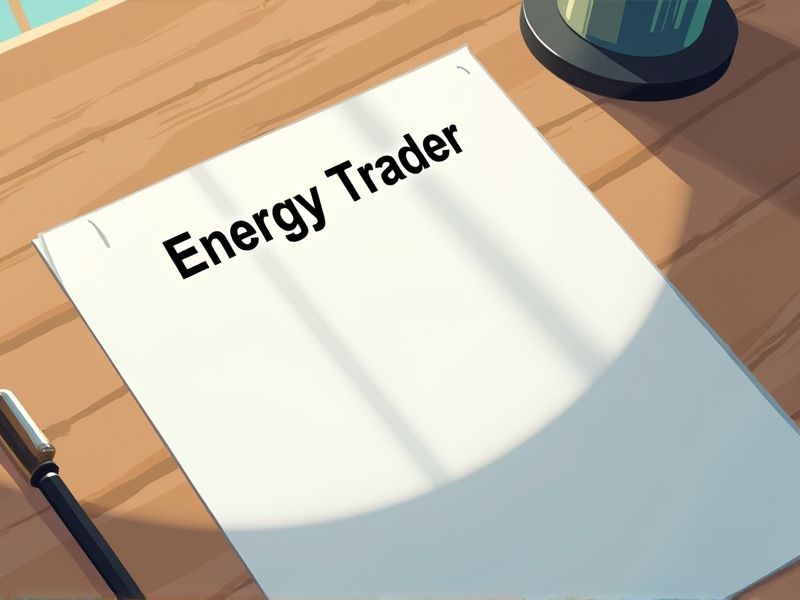
Energy traders operate in a complex and regulated market, requiring a deep understanding of financial instruments and energy commodities. Certifications act as a benchmark for proficiency, ensuring traders possess the necessary skills to navigate this volatile landscape. Acquiring these certifications often leads to increased credibility and career advancement opportunities within the energy sector. These are some of the important certifications you may need as an energy trader.
Energy Risk Professional (ERP)
Energy Risk Professionals are crucial for energy traders as they specialize in identifying and managing the complex risks associated with volatile energy markets. With extensive knowledge of market dynamics, regulatory environments, and risk assessment techniques, ERPs provide traders with strategic insights and risk mitigation strategies. They help in ensuring compliance with changing regulatory standards, thereby minimizing potential legal and financial repercussions. By leveraging data-driven analysis, ERPs assist energy traders in making informed decisions that enhance profitability and sustainability.
Certified Energy Trader (CET)
The Certified Energy Trader (CET) designation enhances credibility and trustworthiness within the energy trading industry. Having CET certification leads to a deeper understanding of market dynamics, regulations, and risk management strategies. Employers often seek certified professionals due to their proven expertise and commitment to industry standards. CET professionals tend to have greater career advancement opportunities and access to a broader network of industry contacts.
Chartered Financial Analyst (CFA)
Energy traders operate in fast-paced and volatile markets, requiring strong analytical skills to assess risk and pricing. A Chartered Financial Analyst (CFA) designation equips them with deep financial and investment analysis knowledge, enhancing their ability to evaluate market trends effectively. The CFA's rigorous curriculum also instills a discipline in ethical and professional standards, which is crucial for maintaining integrity in high-stakes trading environments. With global energy markets becoming increasingly complex, the CFA credential signifies a comprehensive understanding of financial instruments and strategic decision-making.
Financial Risk Manager (FRM)
Energy trading is subject to volatile market conditions influenced by geopolitical events and regulatory changes. A Financial Risk Manager helps identify and mitigate these risks, safeguarding against significant financial losses. Proper risk assessment ensures informed decision-making, enhancing portfolio performance and stability. FRMs implement robust risk management frameworks, enabling energy traders to capitalize on market opportunities while minimizing exposure.
Professional Risk Manager (PRM)
Energy trading involves volatile markets, so the presence of a Professional Risk Manager (PRM) mitigates financial risks by implementing strategic risk assessments. The PRM identifies potential market fluctuations, ensuring that energy traders can make informed decisions to protect assets. Energy trading compliance regulations continuously evolve, necessitating a PRM to oversee adherence and avoid costly penalties. A PRM's expertise in scenario analysis helps traders anticipate and respond effectively to disruptive events, safeguarding investments.
Certified Energy Manager (CEM)
The role of a Certified Energy Manager (CEM) ensures that energy traders have a comprehensive understanding of energy systems, which aids in making informed trading decisions. A CEM provides expertise in energy efficiency and consumption patterns, which helps traders anticipate market demand more accurately. Their knowledge of regulatory requirements aids energy traders in compliance, reducing the risk of costly legal issues. CEM certification enhances credibility, fostering trust with clients and stakeholders in a competitive energy market.
Project Management Professional (PMP)
Energy trading involves complex transactions and regulatory requirements, making PMP certification vital for systematic project execution. PMP equips energy traders with advanced skills in risk management and strategic planning, which are essential for navigating volatile energy markets. Mastery in stakeholder management through PMP fosters better collaboration among diverse teams and entities. Enhanced communication skills obtained through PMP certification lead to more efficient decision-making processes in energy trading projects.
Certificate in Energy Trading and Risk Management (ETRM)
Energy trading markets are complex and volatile, requiring a deep understanding of both market dynamics and risk factors; a Certificate in Energy Trading and Risk Management equips energy traders with essential skills to navigate such intricacies effectively. This certification provides specialized knowledge in risk assessment and management techniques, which are critical for making informed trading decisions. As regulatory frameworks become more stringent, having formal training in ETRM ensures compliance and reduces potential legal issues. With the global shift toward renewable energy, the certification allows traders to adapt strategies in rapidly evolving energy sectors.
Certificate in Derivatives Trading (CDT)
The Certificate in Derivatives Trading (CDT) equips energy traders with essential knowledge on financial instruments, allowing for informed decision-making in volatile markets. Energy trading often involves complex derivative contracts, such as futures and options, which the CDT helps elucidate. Acquiring this certification supports compliance with regulatory requirements and industry standards, promoting credibility and trust. Enhanced risk management skills from the CDT can lead to increased profitability and reduced exposure to market fluctuations.
Certified Treasury Professional (CTP)
The unpredictable nature of the energy markets requires energy traders to manage risk effectively, and obtaining a Certified Treasury Professional (CTP) credential enhances those risk management skills. The CTP certification provides traders with in-depth knowledge of cash and liquidity management, crucial for navigating the financial complexities in trading energy commodities. Companies in the energy sector often demand assurance of financial acumen, and a CTP designation offers tangible proof of a trader's expertise. Energy traders with a CTP are more adept at strategic financial decision-making, which can lead to better trading outcomes in the volatile energy market.
Summary
By obtaining certifications, you can enhance your credibility and expertise in the energy trading field. This typically leads to increased job opportunities and potential for higher earnings. Employers often prefer certified professionals, which can give you a competitive advantage in the job market. Your ability to navigate complex regulatory environments and market dynamics can also improve, boosting your effectiveness and decision-making capabilities.
